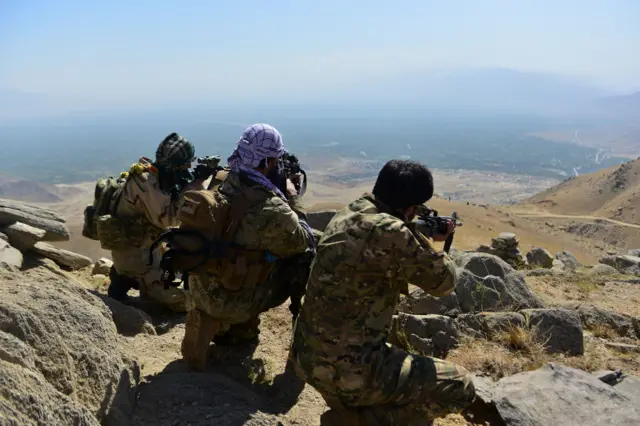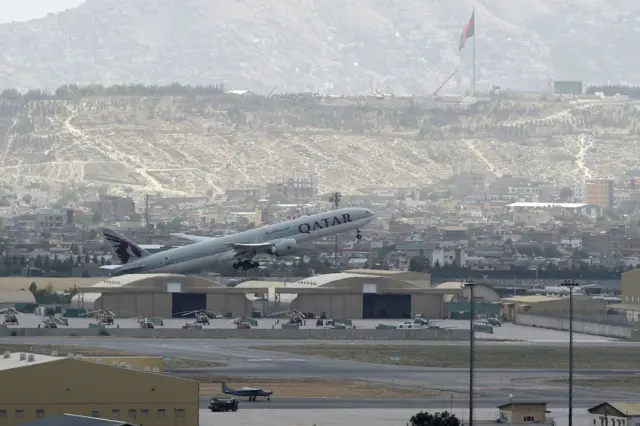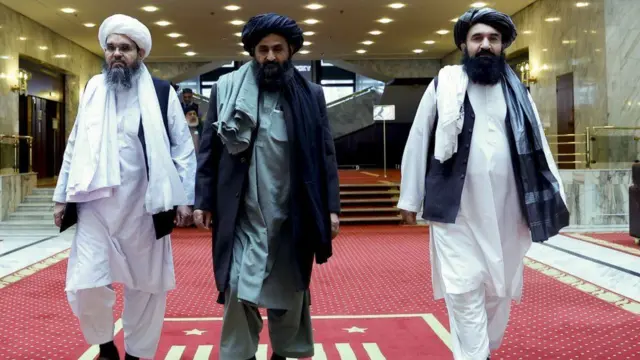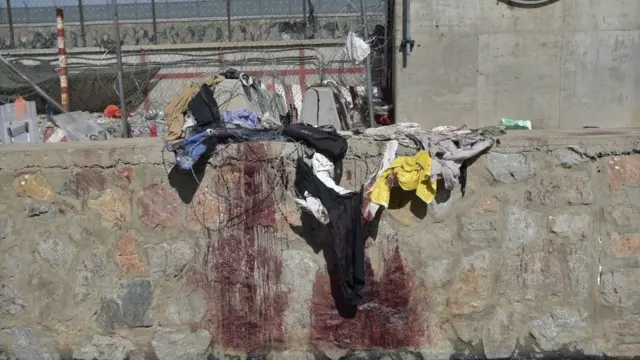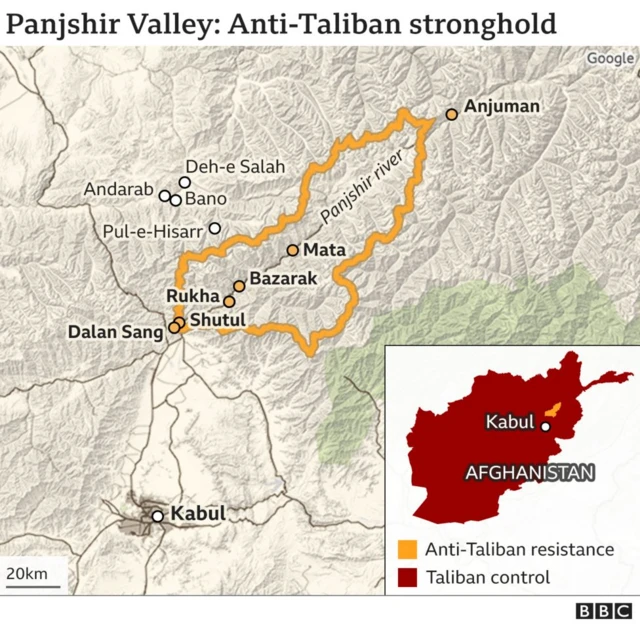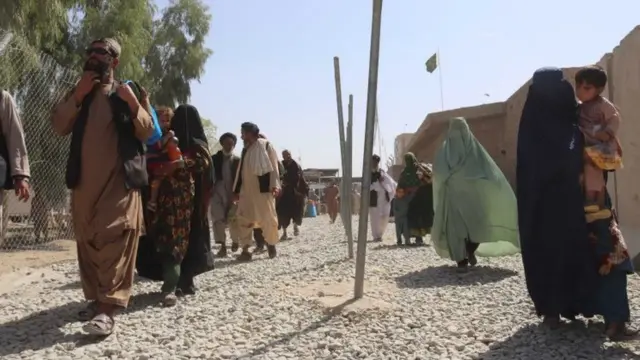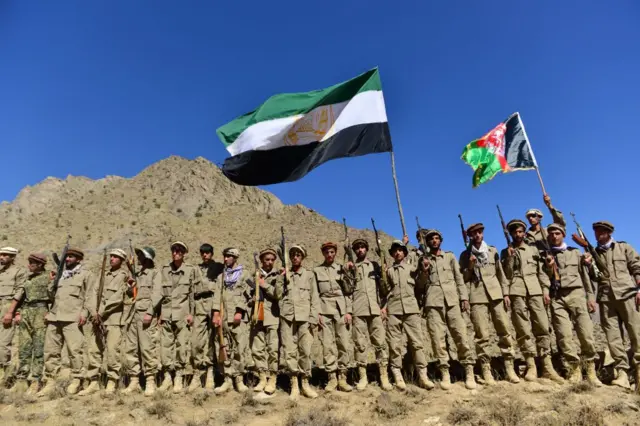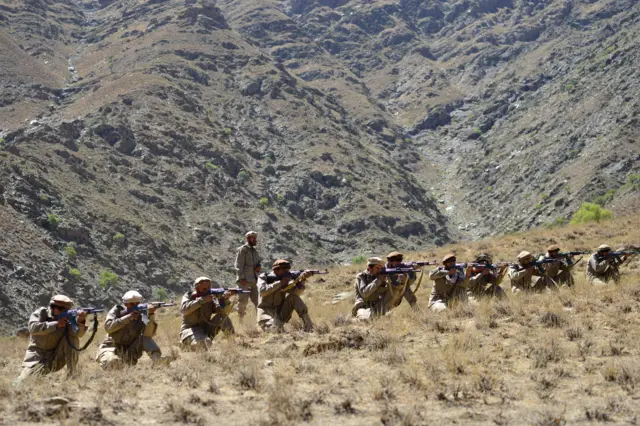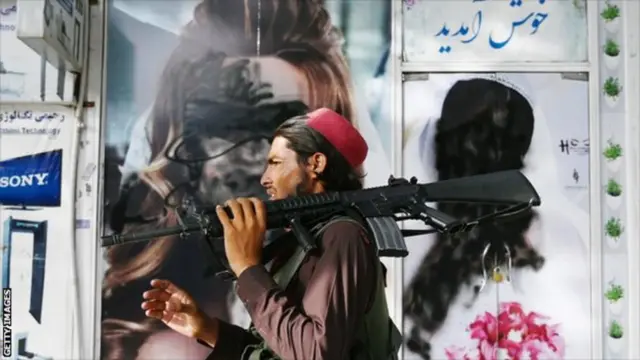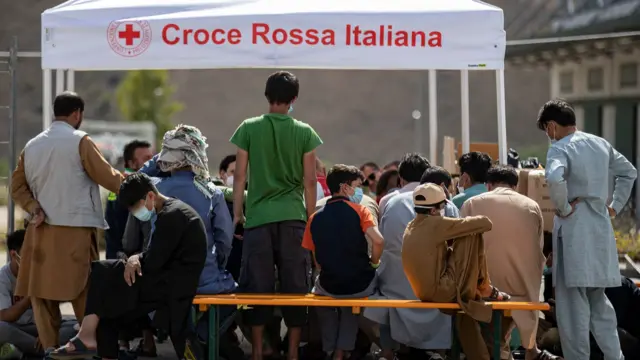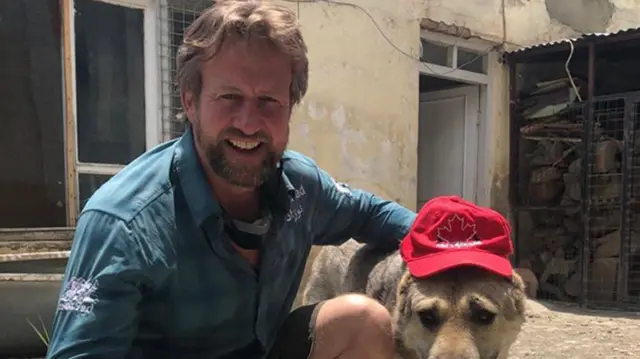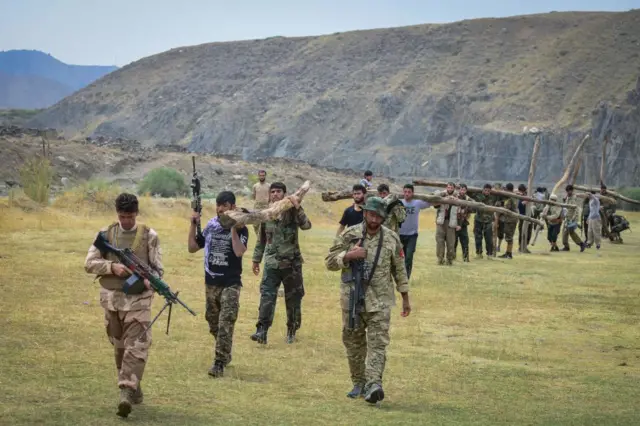Leaked UK document warns of refugee funding shortfallpublished at 10:31 BST 3 September 2021
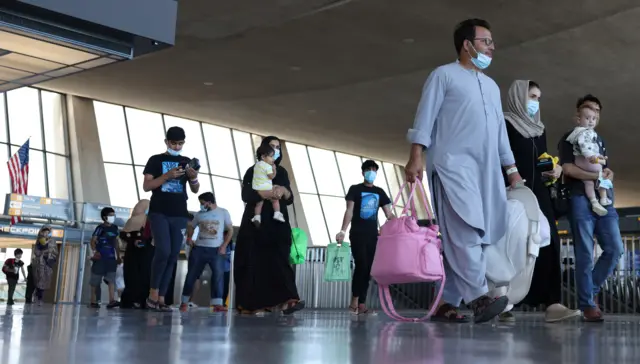 Image source, Reuters
Image source, ReutersThe UK's Treasury must "urgently" arrange extra funding before local councils can start making offers to house Afghan refugees, a document seen by the BBC suggests.
It estimates the cost of helping those coming to the UK over the next 10 years could be more than £2.5bn and it suggests that there has been a shortfall in the cash committed by Whitehall so far.
The leaked document says just under £400m has been allocated so far to help resettle those who had fled the country, but an extra £557m could be needed over the next three years.
The UK has committed to taking in over 20,000 Afghan refugees, with an additional 5,000 due to arrive over the coming year.
